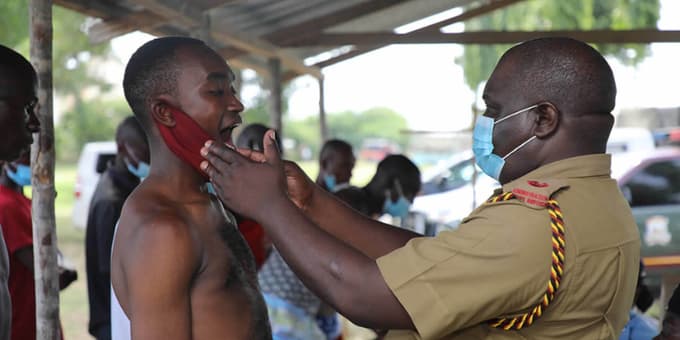We're loading the full news article for you. This includes the article content, images, author information, and related articles.
The Employment and Labour Relations Court has temporarily suspended the nationwide police recruitment exercise, impacting the National Police Service's efforts to bolster its ranks. The ruling sets the stage for a critical hearing later this month.

The Employment and Labour Relations Court in Nairobi has issued a temporary order halting the recruitment of 10,000 police officers, a significant setback for the National Police Service (NPS) and its efforts to address staffing shortages. Lady Justice Hellen Wasilwa delivered the ruling on Thursday, October 2, 2025, in response to an urgent petition challenging the legality of the recruitment process.
The recruitment drive, initially scheduled to commence on Friday, October 3, 2025, and run until October 9 across 416 centres nationwide, will now remain frozen until the petition is fully resolved. This legal challenge comes despite an earlier petition filed by civil society group Sheria Mtaani and activist Shadrach Wambui being withdrawn after appeals from young people.
The National Police Service Commission (NPSC) had advertised the recruitment on September 19, 2025, following a prolonged standoff with the NPS over the recruitment model. The commission had initially advocated for an online application and shortlisting process before physical vetting, a proposal that was later dropped.
Interior Cabinet Secretary Kipchumba Murkomen acknowledged the court directive but expressed confidence that the issue would be resolved swiftly. Speaking at the School of Government in Nairobi on Thursday, October 2, 2025, CS Murkomen emphasized the critical need for new recruits to enhance national security, investor confidence, and border safety. He highlighted that the delay in recruitment has left a significant gap in the NPS for the past four years, with many officers having retired or passed on. The CS also stressed the importance of training new officers in time to support the 2027 general election.
The petition, filed by former legislator John Harun Mwau against the Inspector General of Police and the National Police Service Commission, argues that the recruitment exercise is tied to a constitutional dispute over payroll management. The core of the dispute revolves around whether the custody and administration of the police payroll is an operational role of the Inspector General or a human resource management function, touching on Articles 245 and 246 of the Constitution.
The court has directed the respondents, including the NPSC and the Inspector General, to file their responses within seven days. The petitioner will then have a similar period to file further affidavits and submissions. Lady Justice Wasilwa has scheduled a mention for October 21, 2025, to confirm compliance and for highlighting of submissions.
Analysts suggest that this development could influence near-term public debate and policy execution, with stakeholders urging clarity on timelines, costs, and safeguards. The National Police Service Inspector General Douglas Kanja had, just a day before the court order, reaffirmed the Service's commitment to a credible and transparent recruitment process, urging officers to uphold integrity. NPSC Chairperson Amani Yuda Komora had also assured support for an accountable and merit-based selection.
The suspension poses a risk to national security efforts, particularly with the upcoming 2027 General Election, as the NPS aims to train new officers in time. Continued delays could exacerbate the existing shortage of police officers, impacting public safety and investor confidence.
The proceedings on October 21, 2025, will be crucial in determining the fate of the police recruitment exercise. The court's decision will have significant implications for the National Police Service's operational capacity and the government's ability to address security concerns. The resolution of the constitutional dispute regarding payroll management will also be closely watched.
Keep the conversation in one place—threads here stay linked to the story and in the forums.
Sign in to start a discussion
Start a conversation about this story and keep it linked here.
Other hot threads
E-sports and Gaming Community in Kenya
Active 9 months ago
The Role of Technology in Modern Agriculture (AgriTech)
Active 9 months ago
Popular Recreational Activities Across Counties
Active 9 months ago
Investing in Youth Sports Development Programs
Active 9 months ago
Key figures and persons of interest featured in this article